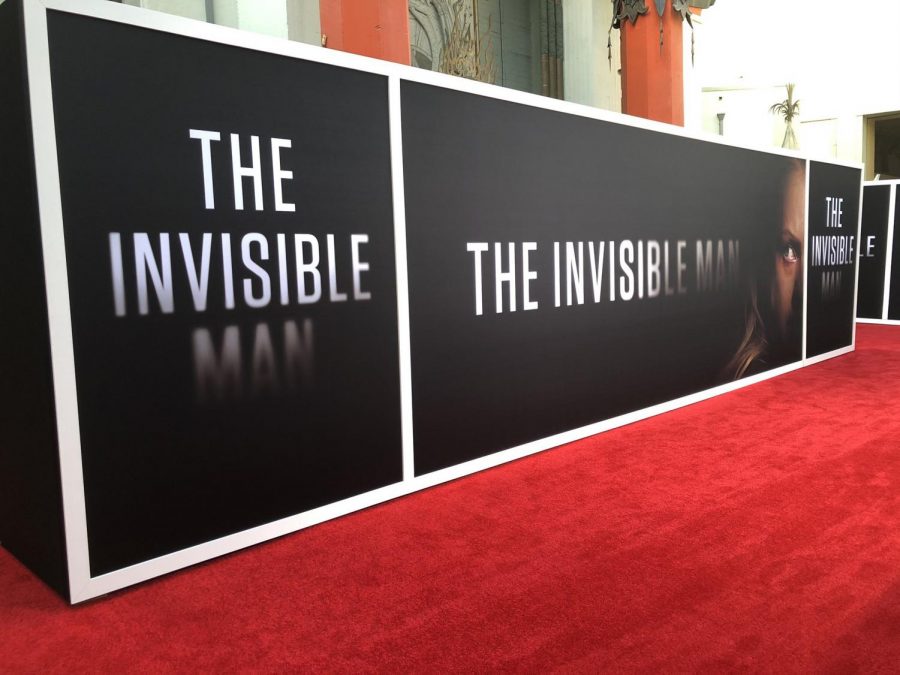“Invisible Man” Fades Into the Background
In the age of “fake news” and endless disinformation, H. G. Wells’ novel “The Invisible Man” seems more relevant than ever. A selfish egomaniac using technology to spread fear and anarchy to rule society is a great hook for modern audiences, even if the story is over a century old. Unfortunately, the Leigh Wannel-directed “The Invisible Man” passes up that opportunity for a focus that, while important, doesn’t quite measure up.
The film draws only vague inspiration from Wells’ story. Cecilia (Elizabeth Moss) is convinced her abusive tech billionaire boyfriend Griffin (Oliver Jackson-Cohen) continues to terrorize her even after his apparent suicide. Something unseen is plaguing her life, but Cecilia is convinced the source might be technological rather than supernatural.
Turning “The Invisible Man” into a parable for abusive relationships in the #MeToo era is an approach that is as clever as it is admirable. The film has been celebrated for its chilling accuracy in that matter, but as a whole, it is too clumsy to make it work. So much of “The Invisible Man” feels exaggerated to the point of obliterating real nuance.
The somewhat metaphorical approach to abuse is also flawed. Aside from some unsympathetic moments, the people in Cecilia’s life don’t doubt Griffin’s monstrous behavior, when the opposite is often the case in real-life instances of abuse. Their issue is mostly with her fantastical claim that he can turn invisible, something the characters have no logical reason to believe. If the metaphor was stronger or the film was more complex, this could have worked, but instead “The Invisible Man” never quite comes to grips with the serious issue it tackles.
The movie still offers some compelling moments here and there. When it can turn down the blaring, inconsistent soundtrack and scale back the special effects, there’s a real sense of tension and paranoia. Unfortunately, that’s offset by some incredibly unsubtle, ridiculous sequences and a bizarre story that goes in too many different directions.
Individual scenes of Cecilia seeking out her unseen stalker are perfectly paced, but the film as a whole lacks that coherence. That’s true for both the scenes themselves and how they are spaced out, particularly as the film reaches its overcomplicated climax and drawn-out ending.
I would blame many of the problems with “The Invisible Man” on the scrapped plans to make it part of Universal’s short-lived monster movie cinematic universe. Even at its best moments, the film feels like it has been subjected to the superhero formula, with the titular antagonist feeling more like a supervillain than anything else.
Clumsy special effects, weak dialogue, exaggerated acting, garish fight scenes and blaring music are all here, along with the other problems seen in the Marvel Cinematic Universe and its imitators. I accept that Wells’ tale had to be modernized for a modern audience, but they didn’t need to draw so heavily from superhero film tropes.
“The Invisible Man” captures the source material’s personal sense of paranoia competently but otherwise misses much of what made Wells’ story such an enduring classic. The selfish genius Griffin was a richly defined character, whereas this film’s version is little more than an empty vessel when he isn’t a cackling supervillain.
A goofy high tech suit is the laughable substitute for the iconic visual of Griffin’s crude and unnerving “disguise” of bandages, baggy coat, wide-brimmed hat and goggle-like glasses. More infuriatingly, a few brief moments of the original design are thrown in just so the trailers could make you think it would appear in the film.
It also takes a lot out of the story to make the Invisible Man’s ability an easily removed bodysuit. Originally, Griffin’s invisibility is the result of an irreversible accident, something he’ll always carry with him, and was a major component of the original tale’s themes.
Even setting aside the source material, “The Invisible Man” hovers around being average aside from a few exceptional sequences. It falls short of its potential, both as a modernization of Wells’ story and as a self-contained work.









































































































































































































